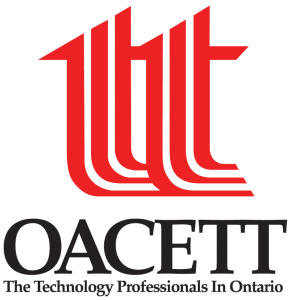Related Research Articles
The Sydney Accord is an international mutual recognition agreement for qualifications in the fields of engineering technology.
Certified engineering technologist (CET) is a Canadian professional certification awarded on the basis of academic qualification and work experience. Abbreviated as C.E.T., most Canadian provincial engineering and applied science technology associations offer this certification. Certification is voluntary and does not represent a provincial regulatory requirement or a statutory required license.
Professional agrologist in Canada, also called agronome in Québec, is the professional designation for the agrology profession in Canada. There are more than 10,000 professional agrologists and agronomes in Canada, registered in ten (10) provincial institutes of agrologists. In the United States the professional designation is Certified Professional Agronomist.
The organizations listed below constitute the Canadian Labour Congress, the national federation of trade unions:
A professional technologist (P.Tech) is a class of certification of engineering technologist and professional technologist in Canada and Malaysia respectively.

The Ontario Association of Certified Engineering Technicians and Technologists, or OACETT, is a not-for-profit, self-governing organization in Ontario, Canada. It is a professional association that promotes the interests of engineering and applied science technicians and technologists to industry, educational institutions, government and with the public. It currently has 24,000+ members.
Expenditures by federal and provincial organizations on scientific research and development accounted for about 10% of all such spending in Canada in 2006. These organizations are active in natural and social science research, engineering research, industrial research and medical research.
The Association of Science and Engineering Technology Professionals of Alberta (ASET), is a professional association located in Alberta, Canada. The organization represents applied science and engineering technology professionals in industry, educational institutions, the public and the government. ASET also evaluates the qualifications of individuals who voluntarily apply for certification and issues professional credentials accordingly. It also delivers a number of benefits and services to its members and their employers.
Registered Professional Planner (RPP) is the term for a registered urban planner in some Canadian Provinces and Territories. Some jurisdictions protect the RPP title, requiring individuals to be registered members of a professional association in order to use the title.
Island Technology Professionals is Prince Edward Island's independent certifying body for engineering/applied science technicians and technologists. It is an official trade name of the Association of Certified Engineering Technicians and Technologists of Prince Edward Island.

The Certified Technicians and Technologists Association of Manitoba (CTTAM) is a regulated profession in Manitoba responsible for certifying engineering/applied science technicians and technologists. The Certified Applied Science Technologists Act assented on June 29, 1998.
The Saskatchewan Applied Science Technologists & Technicians (SASTT) is Saskatchewan's independent certifying body for engineering/applied science technicians and technologists.
The Society of Certified Engineering Technicians and Technologists of Nova Scotia, also called TechNova Certified Technology Professionals, is Nova Scotia's independent certifying body for engineering/applied science technicians and technologists.
Applied science technician is a Canadian certification awarded on the basis of academic qualification and work experience.
In Canada, a new occupational category of "technologist" was established in the 1960s in conjunction with an emerging system of community colleges and technical institutes. It was designed to effectively bridge the gap between the increasingly theoretical nature of engineering science degrees and the predominantly practical approach of technician and trades programs. Provincial associations may certify individuals as a professional technologist (P.Tech), certified engineering technologist (C.E.T.), registered engineering technologist (R.E.T.), applied science technologist (AScT) or technologue professionel (T.P.). These provincial associations are constituent members of the Canadian Council of Technicians and Technologists (CCTT), which nationally accredits technology programs across Canada through its Canadian Technology Accreditation Board (CTAB). Nationally accredited engineering technology programs range from two to three years in length, depending on province, with two-year programs leading to a C.Tech. certification and three-year programs usually leading to an AScT, CET or RET certification.
The Association of Engineering Technicians and Technologists of Newfoundland and Labrador (AETTNL) is Newfoundland and Labrador's independent certifying body for engineering/applied science technicians and technologists.
The Applied Science Technologists and Technicians of British Columbia (ASTTBC), is British Columbia's regulating body for engineering/applied science technicians and technologists in British Columbia.
The Ordre des technologues professionnels du Québec is Quebec's independent certifying body for engineering/applied science technicians and technologists.
The New Brunswick Society of Certified Engineering Technicians and Technologists or NBSCETT is New Brunswick's independent certifying body for engineering/applied science technicians and technologists. NBSCETT was established in 1968. It confers the designations "C.Tech" and "P. Tech" which are symbols of achievement in engineering/applied science technology and are legally protected for use only by fully certified members. The designations are recognized across Canada by many employers and other engineering professionals through the efforts of provincial associations that make up the Canadian Council of Technicians and Technologists (CCTT). Though CCTT being a signatory, NBSCETT recognizes international transferability through the Sydney Accord, the Dublin Accord and the Engineering Technologist Mobility Forum, which confers the ability to award the designation IntET (Canada) for Technologists who wish to work internationally.
Canada was the second nation in the world to formally organize its accounting profession, after the United Kingdom, but it occurred in a fragmented manner by both locality and specialty. It would only begin to experience significant consolidation from 2012 onwards.
References
- ↑ "About TPC | Technology Professionals Canada". Archived from the original on 2012-07-24. Retrieved 2014-03-22. About Technology Professionals Canada
- ↑ Saunders, David; Thomson, David (May–June 2010). "CCTT withdrawal update" (PDF). The Ontario Technologist. Vol. 52, no. 3. Etobicoke, Ontario: The Ontario association of Certified Engineering Technicians and Technologists (OACETT). p. 9. Archived from the original (PDF) on 28 March 2022.
- ↑ "Technology Professionals Move to Create One Canadian Voice Through Landmark Union". 2021-01-28. Retrieved 2023-01-10.
- ↑ "Technology Accreditation". Archived from the original on 2014-03-22. Retrieved 2014-03-22. Accreditation for Technology Professionals in Canada